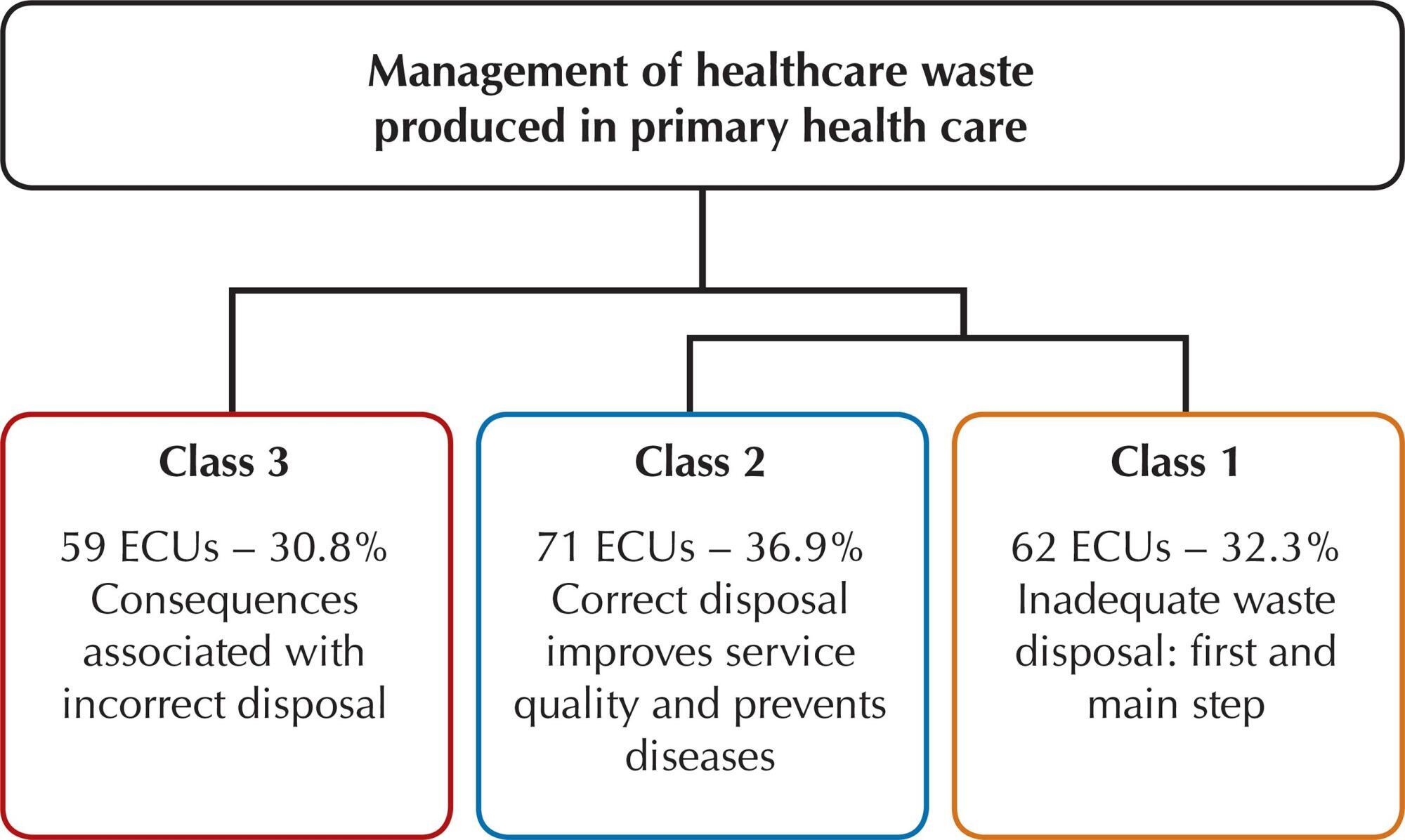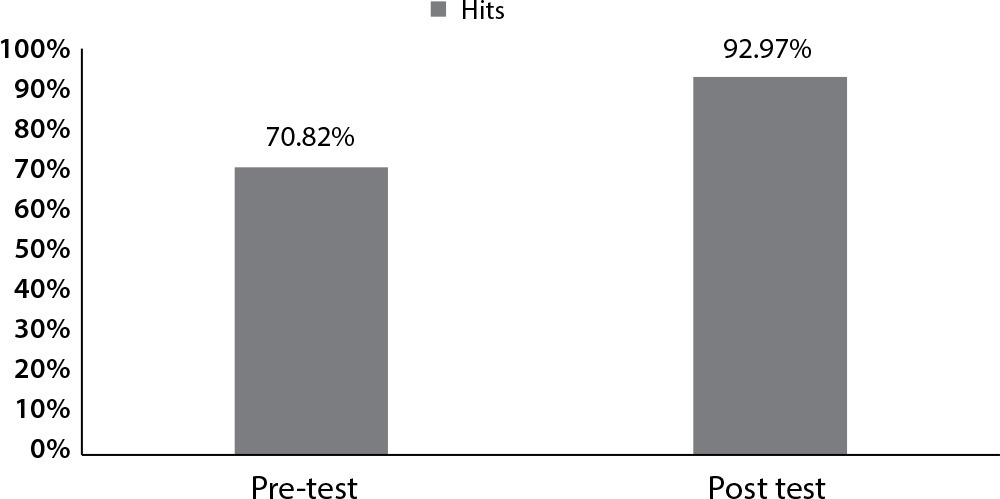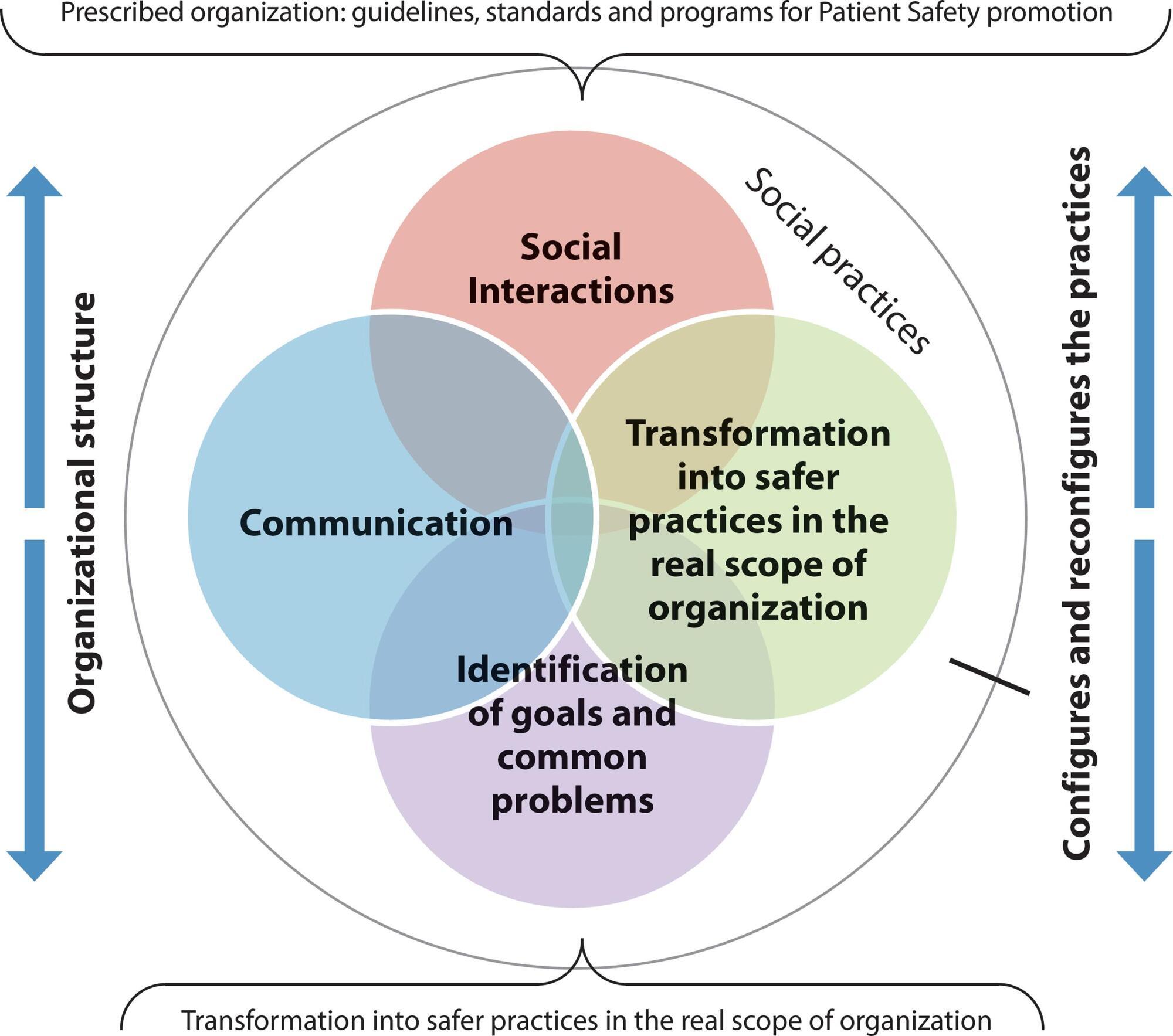-
RESEARCH01-01-2018
Developmental Care: assistance of nurses from Neonatal Intensive Care Units
Revista Brasileira de Enfermagem. 2018;71:2758-2766
Abstract
RESEARCHDevelopmental Care: assistance of nurses from Neonatal Intensive Care Units
Revista Brasileira de Enfermagem. 2018;71:2758-2766
DOI 10.1590/0034-7167-2017-0912
Views0See moreABSTRACT
Objective:
to analyze the Developmental Care in nursing care for Newborns in critical Neonatal Intensive Care Units.
Method:
a qualitative study with 11 nurses from Neonatal Intensive Care Units of a city in the State of São Paulo countryside, based on the Developmental Care. Data collection was based on non-participant observation, documentary research in medical records and semi-structured interviews. The Symbolic Interactionism was adopted as theoretical framework, and the Bardin Content Analysis, as method of analysis.
Results:
nurses have knowledge about Developmental Care; however, there are dissonances with doing them. The analysis is presented from two thematic categories: “Nurses’ performance in the Developmental Care” and “Nurse, Family and Developmental Care”.
Final considerations:
it is necessary to encourage reflections on the care of nurses regarding Developmental Care, and to foster sensitivity and perception in relation to the executed and registered.
-
RESEARCH01-01-2018
The production of the professional master’s degree in nursing of the Federal University of Santa Catarina, 2013-2016
Revista Brasileira de Enfermagem. 2018;71:2751-2757
Abstract
RESEARCHThe production of the professional master’s degree in nursing of the Federal University of Santa Catarina, 2013-2016
Revista Brasileira de Enfermagem. 2018;71:2751-2757
DOI 10.1590/0034-7167-2018-0153
Views0See moreABSTRACT
Objective:
To summarize the production of the Professional Master’s Program in Nursing Care Management of the Federal University of Santa Catarina, between 2013 and 2016.
Method:
electronic documental research. After data collection, we analyzed the numbers of defenses in relation to what was predicted by the respective public notices; as well as sex, training time and professional area of the authors; scenario, context and research line; general objective, analysis support model, methodological approach, instruments/techniques of data collection, and technique of analysis; and, finally, technological productions.
Results:
57 dissertations were found and subjected to analysis. The highest number of defenses took place in 2016, in the public scenario, in a care context, with a qualitative approach and having assistance protocols as a final product.
Conclusion:
Although the country has weaknesses in its educational system, results of the post-graduate level stand out through the technological productions of professional master’s studies in nursing.
-
RESEARCH01-01-2018
Electroconvulsive therapy: historical construction of nursing care (1989-2002)
Revista Brasileira de Enfermagem. 2018;71:2743-2750
Abstract
RESEARCHElectroconvulsive therapy: historical construction of nursing care (1989-2002)
Revista Brasileira de Enfermagem. 2018;71:2743-2750
DOI 10.1590/0034-7167-2018-0168
Views0See moreABSTRACT
Objective:
to describe the nursing care performed by the nursing team to the person with mental disorder submitted to ECT and to analyze the implications of the Psychiatric Reform in this care.
Method:
socio-historical study, which uses the Thematic Oral History method.
Results:
the nursing team is present in a continuous way in the monitoring of people submitted to ECT, performing care before, during and after the same, as well as visualizing the evolution of the technique and also of nursing care itself, however, does not recognize the Psychiatric Reform as agent for this change.
Final considerations:
the Brazilian Psychiatric Reform triggered a process of humanization of nursing knowledge, influencing the care of the person with mental disorder submitted to ECT, with this, care practices also changed, a law was approved, regulating its practice, and its application was decreasing.
-
RESEARCH01-01-2018
Nurses’ perspective on health education in Diabetes Mellitus Care
Revista Brasileira de Enfermagem. 2018;71:2735-2742
Abstract
RESEARCHNurses’ perspective on health education in Diabetes Mellitus Care
Revista Brasileira de Enfermagem. 2018;71:2735-2742
DOI 10.1590/0034-7167-2018-0396
Views0See moreABSTRACT
Objective:
to grasp the perspective of nurses on health education in the process of caring for people with Diabetes Mellitus in Primary Care.
Method:
a descriptive study of a qualitative nature carried out with 13 nurses from the Family Health Strategy in Southern Brazil. The data were collected in November and December of 2017, through recorded interviews, which were submitted to content analysis, thematic modality.
Results:
three categories emerged, which show from the perspective of nurses, the influence of structural and assistance characteristics in the development of educational actions; outcomes of these actions, and possibilities to increase their quality as central to the nursing action.
Final considerations:
there are still gaps in the structuring of public health policies, especially in the process of managing and caring for people with diabetes, which limits quantitatively and qualitatively the development of educational actions in Primary Care.
-
RESEARCH01-01-2018
Nursing professionals’ knowledge regarding the management of waste produced in primary health care
Revista Brasileira de Enfermagem. 2018;71:2728-2734
Abstract
RESEARCHNursing professionals’ knowledge regarding the management of waste produced in primary health care
Revista Brasileira de Enfermagem. 2018;71:2728-2734
DOI 10.1590/0034-7167-2018-0308
Views0See moreABSTRACT
Objective:
To evaluate the knowledge of Nursing professionals regarding waste management in primary healthcare services.
Method:
Descriptive study with a mixed approach, developed with 42 nursing professionals who worked in basic health units of a capital in the Brazilian Northeast Region. Quantitative variables were analyzed by the SPSS 20.0 program. Reports were processed by the IRaMuTeQ software, analyzed according to the descending hierarchical classification, and grounded on the Collective Subject Discourse.
Results:
Low knowledge scores were obtained, associated with specific socioeconomic and training variables. Analysis of collected reports allowed to identify three classes: “Inadequate waste disposal: first and main step”; “Correct disposal improves service quality and prevents diseases”; and “Consequences associated with incorrect disposal”.
Conclusion:
The knowledge of professionals falls short of the expectations to adequately manage waste produced in primary health care and is concentrated on the initial steps, mainly the disposal process.

-
RESEARCH01-01-2018
Between State, society and family: the care of female caregivers
Revista Brasileira de Enfermagem. 2018;71:2720-2727
Abstract
RESEARCHBetween State, society and family: the care of female caregivers
Revista Brasileira de Enfermagem. 2018;71:2720-2727
DOI 10.1590/0034-7167-2018-0111
Views0See moreABSTRACT
Objective:
to investigate the care provided by family female caregivers of elderly dependents who have been monitored by public home care and its social repercussions, discussing the facets between State, society and families.
Method:
descriptive cross-sectional study, with 45 caregivers of elderly patients accompanied by Home Care Services. Data were collected by means of a structured script. The discussion was elaborated in light of the works “Cuidado e cuidadoras: as várias faces do trabalho do ‘care'” (Care and female caregivers: the several faces of the care work) and “Gênero e trabalho na França e no Brasil” (Gender and work in France and Brazil).
Results:
Most caregivers were women (95%) who performed home care at several places and incorporated hospital equipment into everyday life. They have been caregivers for four and a half years, working 18 hours a day on average; they presented average age of 55 years; 82% were ill, and 43% had no income.
Conclusion:
the study demonstrated the relevance of the care of female caregivers to society as well as their invisibility to public health and social policies.
-
RESEARCH01-01-2018
Quality of Primary Health Care in Brazil: patients’view
Revista Brasileira de Enfermagem. 2018;71:2713-2719
Abstract
RESEARCHQuality of Primary Health Care in Brazil: patients’view
Revista Brasileira de Enfermagem. 2018;71:2713-2719
DOI 10.1590/0034-7167-2017-0656
Views0See moreABSTRACT
Objective:
To describe the evaluation of patients that participated in the National Program for Improving the Access and Quality in Primary Health Care (Programa Nacional de Melhoria do Acesso e da Qualidade na Atenção Básica) for the comprehensive healthcare, the bond and the coordination of care in the country’s macro-regions.
Method:
A descriptive, transversal study, from interviews with 65,391 patients of Primary Health Care, in 3,944 municipalities regarding the use of health services.
Results:
The professionals seek to solve the patients’ problems in their unit (73.1%) but focused mainly on the scope of the appointment (65.6%) and offering care away from the population’s reality (69.4%). Difficulties in the rescue of clinical history were referred (50.3%) and in the care performed in other health services (29.2%).
Conclusion:
The comprehensive health care, the bond and the coordination of care remain challenges to the Primary Health Care in the country, requiring reflections on the implementation of national policies, especially considering the regional diversities in Brazil.
-
RESEARCH01-01-2018
Role-playing: teaching strategy that encourages reflections on nursing care
Revista Brasileira de Enfermagem. 2018;71:2706-2712
Abstract
RESEARCHRole-playing: teaching strategy that encourages reflections on nursing care
Revista Brasileira de Enfermagem. 2018;71:2706-2712
DOI 10.1590/0034-7167-2017-0733
Views0See moreABSTRACT
Objective:
Describe the reflections of nursing students on nursing care through the use of role-playing.
Method:
Qualitative research with descriptive-exploratory approach and documentary base. The data were collected from portfolios of 32 students from an undergraduate course in the Southern Brazil. The analysis of the data followed the steps of sorting, classification in structures of relevance, synthesis and interpretation.
Results:
Two empirical categories were obtained: (1) Feelings in the act of taking care and receiving care and (2) Reversing roles: benefits to the nurse in the act of caring.
Final considerations:
The use of role-playing as a strategy for teaching the theme of care to undergraduate students encouraged reflections about the skills and abilities necessary for the act of taking care and favored the students’ self-perception as nurses, appropriating the essence of their future profession: care.
-
ORIGINAL ARTICLE11-10-2022
Effect of educational video on newborn care for the knowledge of pregnant and postpartum women and their families
Revista Brasileira de Enfermagem. 2022;75:e20201371
Abstract
ORIGINAL ARTICLEEffect of educational video on newborn care for the knowledge of pregnant and postpartum women and their families
Revista Brasileira de Enfermagem. 2022;75:e20201371
DOI 10.1590/0034-7167-2020-1371
Views0See moreABSTRACT
Objectives:
to evaluate the effect of educational video on newborn care to increase the knowledge of pregnant, postpartum, and family members.
Methods:
a quasi-experimental study, with pre-intervention and post-intervention evaluation with a single group. Fifty-eight pregnant, postpartum, and family members treated in basic health units and a hospital in Ceará, Brazil, participated. The study used the McNemar and binomial tests for the analysis.
Results:
after the intervention, there was an increase in the frequency of hits, from 70.82% to 92.97%. Most of the questions presented a significant increase of hits (p < 0.05) with an emphasis on sleeping position, drying of clothes, free demand for breastfeeding, and things to avoid (such as accessories in the sleeping place and talc in diaper change).
Conclusions:
the educational video was effective to participants in acquiring knowledge on the care of newborns and can assist in health education activities carried out by nurses.

-
ORIGINAL ARTICLE06-27-2019
Health literacy of adults with and without arterial hypertension
Revista Brasileira de Enfermagem. 2019;72(3):646-653
Abstract
ORIGINAL ARTICLEHealth literacy of adults with and without arterial hypertension
Revista Brasileira de Enfermagem. 2019;72(3):646-653
DOI 10.1590/0034-7167-2018-0366
Views1See moreABSTRACT
Objective:
Assess the level of health literacy of adults, with and without hypertension, treated in three basic health units (UBS) in Picos, Piauí.
Methods:
Cross-sectional study conducted with 357 adults. Data were collected using a questionnaire with sociodemographic variables, and literacy was assessed by the Test of Functional Literacy in Adults. Descriptive analysis was performed followed by the association between literacy and exposure variables with Pearson’s chi-squared (X2) test and Mann-Whitney U test.
Results:
Inadequate or marginal health literacy was found in three units investigated (71.5%; 77.8% and 85.2%);. Age and the years of schooling were factors associated with inadequate literacy in adults with hypertension (p<0.0001).
Conclusion:
Inadequate literacy was found in more than 70% of the hypertensive patients investigated. This finding reinforces the need to improve the self-care skills of hypertensive patients, especially the older ones and those with few years of schooling.
-
ORIGINAL ARTICLE03-30-2020
Clinical simulation in teaching Pediatric Nursing: students’ perception
Revista Brasileira de Enfermagem. 2020;73(2):e20180720
Abstract
ORIGINAL ARTICLEClinical simulation in teaching Pediatric Nursing: students’ perception
Revista Brasileira de Enfermagem. 2020;73(2):e20180720
DOI 10.1590/0034-7167-2018-0720
Views0See moreABSTRACT
Objectives:
to comprehend the perception of undergraduate nursing students about learning to care for the child and family through clinical simulation.
Methods:
this is a qualitative research conducted with ten nursing students through semi-structured interviews. Data were analyzed through content analysis.
Results:
data were organized into two categories: “learning a new way to learn,” in which students describe their experiences during the simulation, and “learning a new way to care,” in which they reflect on learning through simulation.
Final considerations:
we believe that clinical simulation practice in teaching should be encouraged because of the benefits it can offer to the students, faculty, patients and their families. However, we recommend further studies to validate scenarios of child and family healthcare.
-
ORIGINAL ARTICLE10-18-2022
Methodological path to reach the degree of saturation in qualitative research: grounded theory
Revista Brasileira de Enfermagem. 2022;75(2):e20201379
Abstract
ORIGINAL ARTICLEMethodological path to reach the degree of saturation in qualitative research: grounded theory
Revista Brasileira de Enfermagem. 2022;75(2):e20201379
DOI 10.1590/0034-7167-2020-1379
Views0See moreABSTRACT
Objectives:
to achieve the degree of saturation in study that applied the grounded theory.
Methods:
qualitative research, carried out in four Family Health Units, between June 2018 and May 2019. The data from the interviews with 30 health professionals and non-participant observation were coded in the stages: open, axial and integration.
Results:
the degree of saturation was achieved by two conceptual models – theoretical saturation and inductive thematic. Theoretical saturation was considered: the development of conceptual codes and observation, in the collection and analysis of data, when they generated new categories/subcategories or only indicated increasing instances. For thematic inductive saturation, the use of new codes based on each interview stood out.
Final Considerations:
the visual layout for the number of codes, the theoretical scope of the concepts and the delimitation of the sample groups guided the identification of the degree of saturation for the development of the conceptual body that supported the substantive theory.
-
08-01-2022
Monkeypox: between precision public health and stigma risk
Revista Brasileira de Enfermagem. 2022;75(5):e750501
Abstract
Monkeypox: between precision public health and stigma risk
Revista Brasileira de Enfermagem. 2022;75(5):e750501
DOI 10.1590/0034-7167.2022750501
Views0The World Health Organization (WHO) is on alert due to an unprecedented Monkeypox outbreak in non-endemic countries, such as Europe, which have been affected recently. Despite the low pandemic potential, the recent SARS-CoV-2 pandemic has contributed to heightened levels of public concern in the face of the threat of new global health emergencies().As of May […]See more -
ORIGINAL ARTICLE11-02-2020
Transitional care from hospital to home for older people: implementation of best practices
Revista Brasileira de Enfermagem. 2020;73:e20200187
Abstract
ORIGINAL ARTICLETransitional care from hospital to home for older people: implementation of best practices
Revista Brasileira de Enfermagem. 2020;73:e20200187
DOI 10.1590/0034-7167-2020-0187
Views0See moreABSTRACT
Objective:
to assess the conformity of nursing care concerning best evidence in transitional care from hospital to home for older people.
Methods:
a project to implement best evidence based on the model proposed by the Joanna Briggs Institute in surgical clinic of a university hospital with older people, caregivers or family members, and nurses, between July and August 2019. Eight evidence-based criteria have been audited through interviews, medical records and computerized system, presented in percentages.
Results:
the highest non-compliance rate found in a baseline audit was absence of continued training on transitional care and hospital discharge plan. Identifying barriers to best practices included educational programs; afterwards, there was an improvement in compliance rates in all the criteria assessed.
Final considerations:
the criteria based on audited evidence showed an increase in compliance rates with the strategies implemented, contributing to improving transitional care for older people.

-
ORIGINAL ARTICLE10-21-2019
Practice challenges in patient safety
Revista Brasileira de Enfermagem. 2019;72(6):1504-1511
Abstract
ORIGINAL ARTICLEPractice challenges in patient safety
Revista Brasileira de Enfermagem. 2019;72(6):1504-1511
DOI 10.1590/0034-7167-2018-0441
Views0See moreABSTRACT
Objective:
to understand the professional practice challenges in reaching the goals and objectives of the National Patient Safety Program (Programa Nacional de Segurança do Paciente).
Method:
qualitative case study, based on the Comprehensive Sociology, carried out with 31 professionals from the Patient Safety Center (Núcleo de Segurança do Paciente) and the nursing team, working in a teaching hospital. Data collection took place between May and December 2015 through interviews, observation and documentary analysis. The analysis proceeded according to the prerogatives of the Content Analysis.
Results:
three categories emerged: the prescribed reality; material resources and their impact on care; and human resources related to the reality.
Final considerations:
challenges to safe professional practice are caused by inadequate physical structure, insufficient physical and human resources, but mainly invade the transition from the prescriptive reality scope.

-
RESEARCH01-24-2017
Nurses in the labor market: professional insertion, competencies and skills
Revista Brasileira de Enfermagem. 2017;70(6):1220-1226
Abstract
RESEARCHNurses in the labor market: professional insertion, competencies and skills
Revista Brasileira de Enfermagem. 2017;70(6):1220-1226
DOI 10.1590/0034-7167-2016-0061
Views0See moreABSTRACT
Objective:
to characterize nurses graduated from the School of Nursing of the University of São Paulo, from 2006 to 2012; verify their entry, facilitating factors and difficulties of these graduates in the labor market and to consider their skills and competences in the world of work.
Method:
an exploratory, descriptive study with a qualitative approach.
Results:
out of 505 graduates, 172 (34.1%) participated in the research. Entry into the labor market was mainly via public hospital institutions, in the SE of Brazil, in the caregiving sectors. The greater part remained from one to two years in their first job. Most agreed that they were prepared to meet the health needs of the population. Furthermore, they had been encouraged to seek systematic and continuous improvement in a critical, reflexive and creative way, while combining technical-scientific knowledge and personal skills.
Conclusion:
the results show that the University of São Paulo has been preparing nurses for work in the labor market, in accordance with the provisions of the National Curricular Guidelines.
Search
Search in:
Nuvem de Tags
Adolescente (85) Atenção Primária à Saúde (239) COVID-19 (91) Criança (91) Cuidados de Enfermagem (269) Educação em Enfermagem (151) Educação em Saúde (139) Enfermagem (930) Enfermagem Pediátrica (86) Estudantes de Enfermagem (77) Estudos de Validação (131) Família (87) Idoso (208) Promoção da Saúde (99) Qualidade de Vida (104) Saúde do Trabalhador (86) Saúde Mental (145) Saúde Pública (82) Segurança do Paciente (150) Tecnologia Educacional (100)



